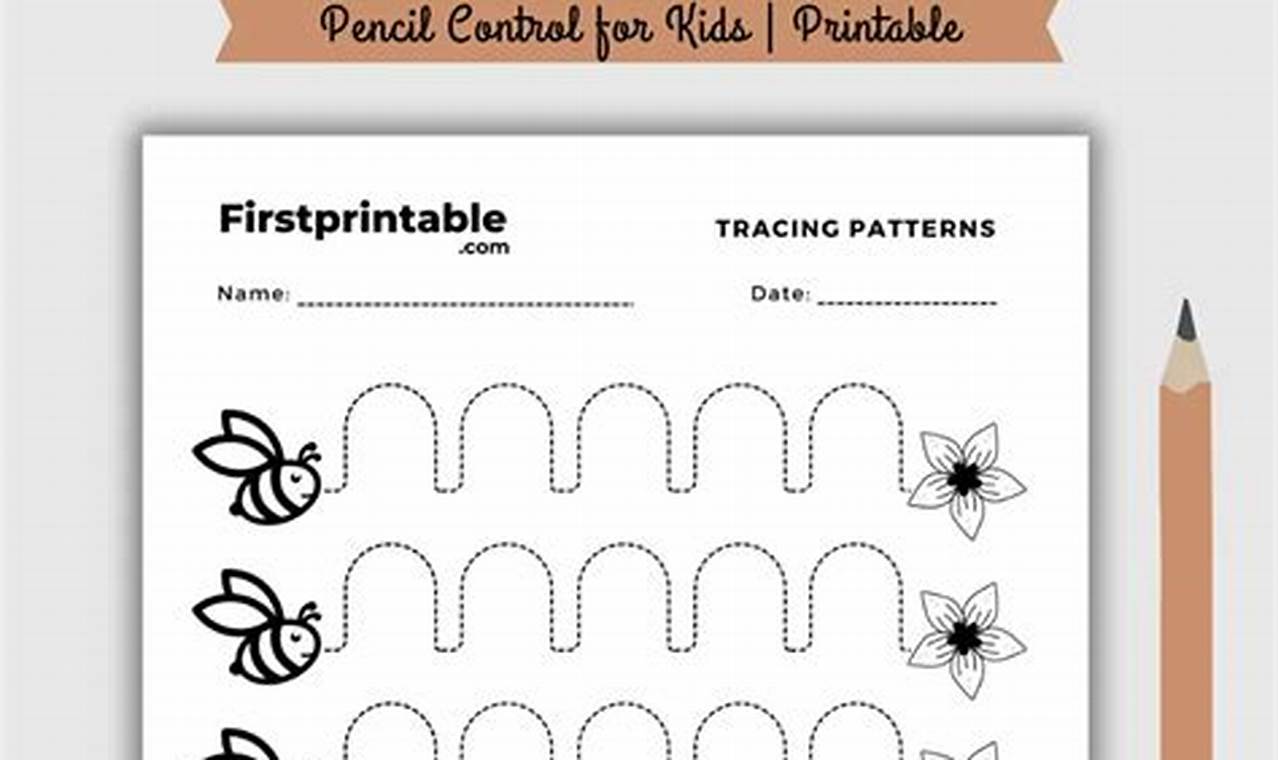Developing fine motor skills is fundamental for children’s early education. Activities that promote hand-eye coordination and dexterity pave the way for success in handwriting, art, and various academic tasks. Tracing complex patterns is one such exercise that significantly contributes to this vital developmental process, enhancing a child’s ability to control a pencil and create intricate shapes.
The “tracing complex patterns for pencil dexterity” worksheet offers several key learning benefits. It enhances a child’s ability to control the movements of their hand and fingers, leading to improved handwriting skills. Furthermore, the act of following patterns sharpens visual-motor coordination, crucial for reading and writing. By engaging with the complex designs, children also improve their focus and concentration, essential skills for academic success.
This worksheet features a variety of intricate and engaging patterns designed to challenge and stimulate young minds. It includes swirling lines, repeating geometric shapes, and interwoven designs. Each pattern is carefully crafted to gradually increase in complexity, allowing children to build their skills progressively. The patterns are presented in a clear, uncluttered format to minimize distractions and maximize focus. Ample space is provided for practice, allowing children to repeat each pattern multiple times until they feel confident.
To effectively use the “tracing complex patterns for pencil dexterity” worksheet, begin by providing a comfortable and well-lit workspace. Encourage the child to hold the pencil with a relaxed grip. Start with the simplest patterns first and gradually progress to more complex designs. Suggest taking short breaks to prevent fatigue and maintain focus. Adults can assist by gently guiding the child’s hand if needed, providing positive reinforcement and encouragement throughout the activity. Consider using colored pencils for added engagement and visual stimulation.
To further develop fine motor skills, consider incorporating other activities such as coloring books, puzzles, and building blocks. Explore related worksheets on Kidtraces.com, focusing on letter tracing and shape recognition, to reinforce learned skills. Educational games that require precise hand movements, such as bead stringing or drawing apps, can also be beneficial. Incorporating daily activities like buttoning clothes or using child-safe scissors can further enhance dexterity and hand-eye coordination.
The “tracing complex patterns for pencil dexterity” worksheet is a valuable tool for fostering fine motor skills and preparing children for writing and other academic challenges. By engaging with these patterns, children enhance their hand control, improve focus, and build confidence in their abilities. Download the worksheet today and witness the positive impact it can have on a child’s learning journey. Explore more free worksheets on Kidtraces.com to support continuous learning and skill development.
